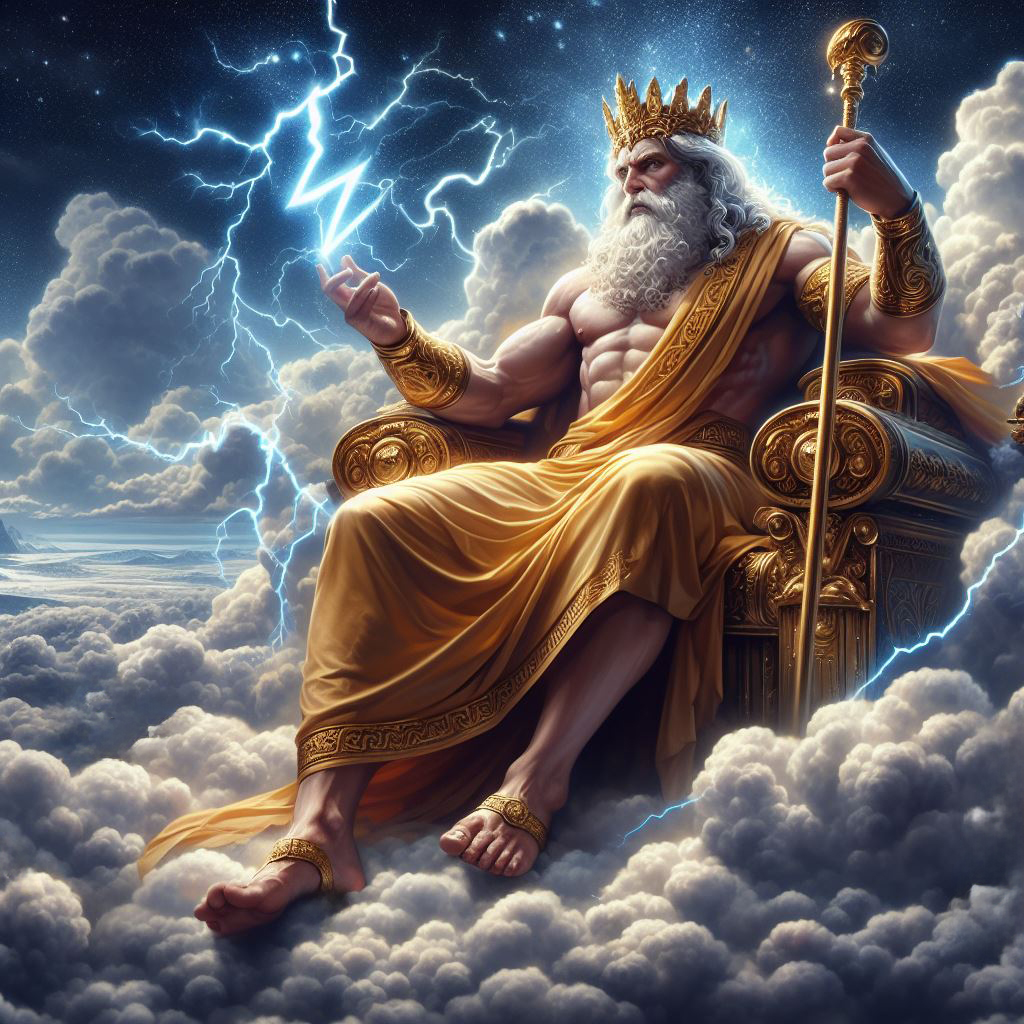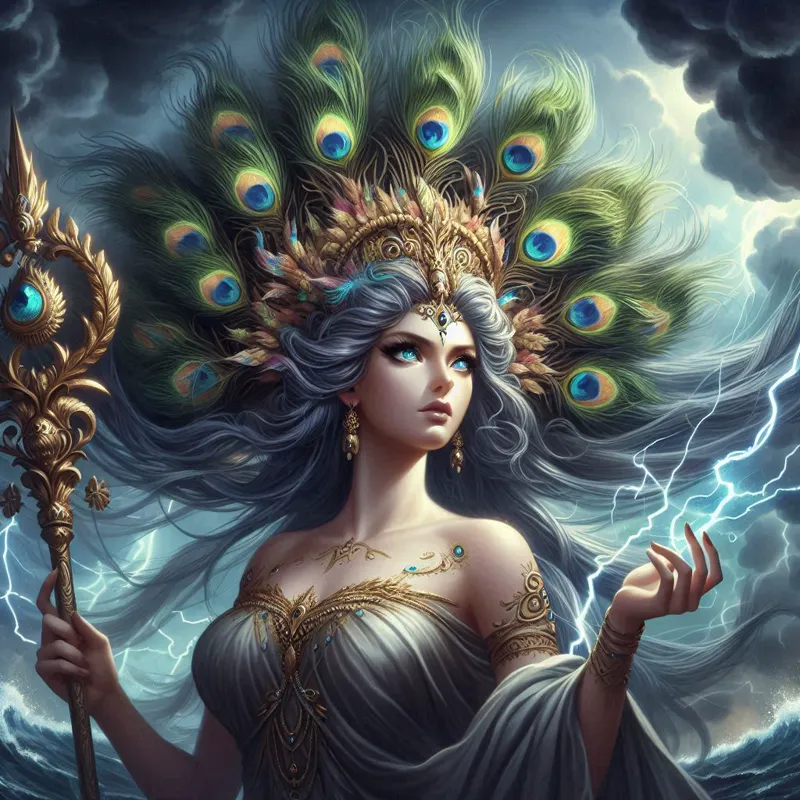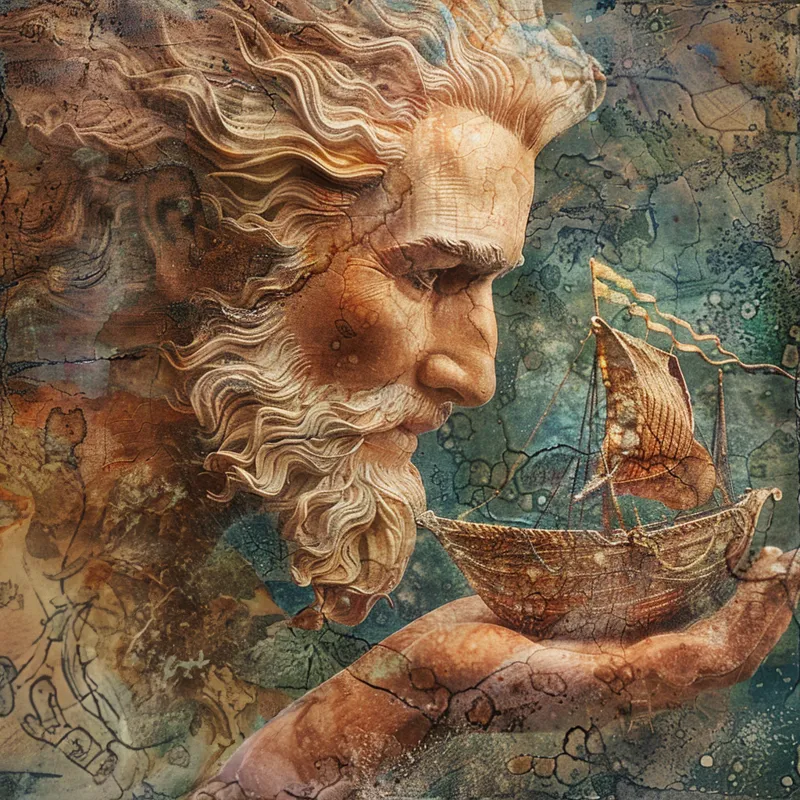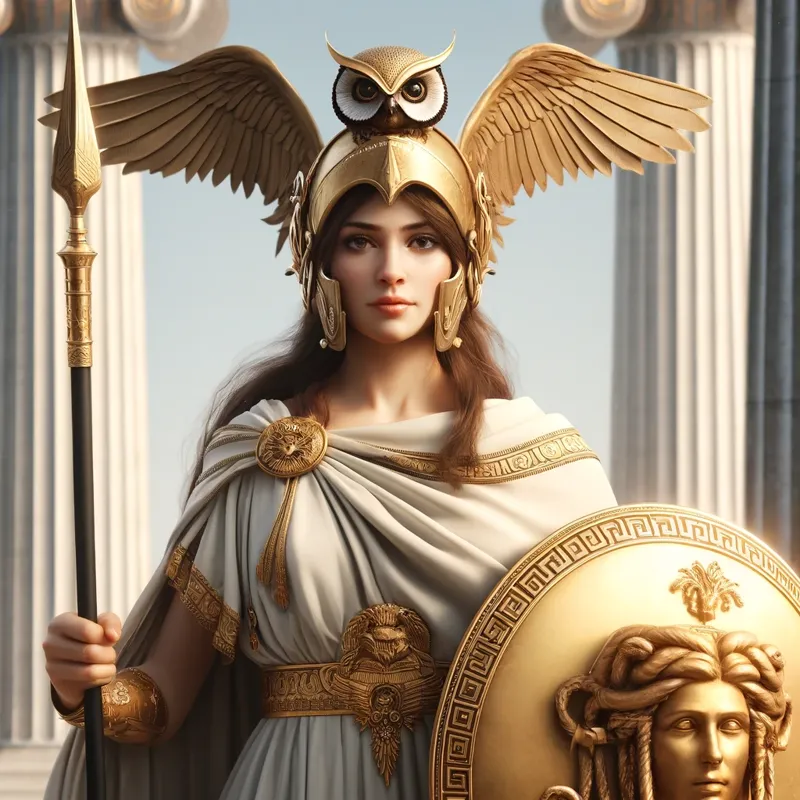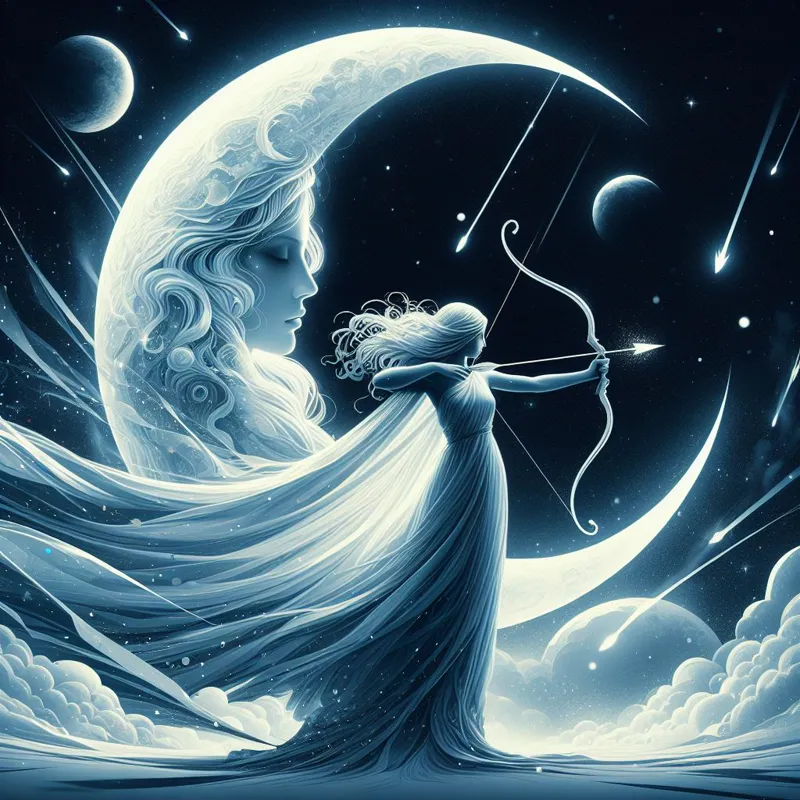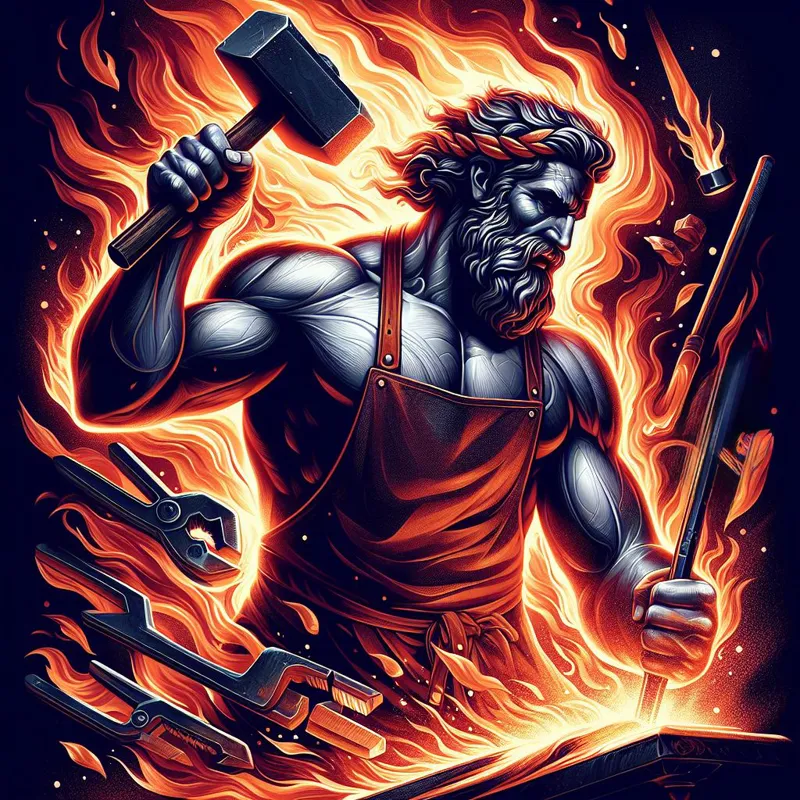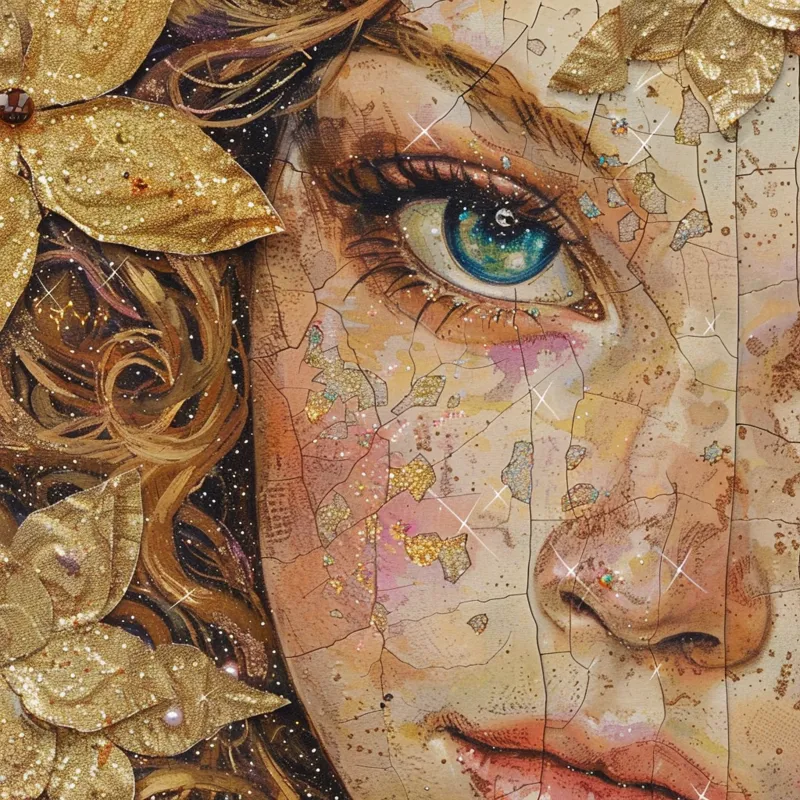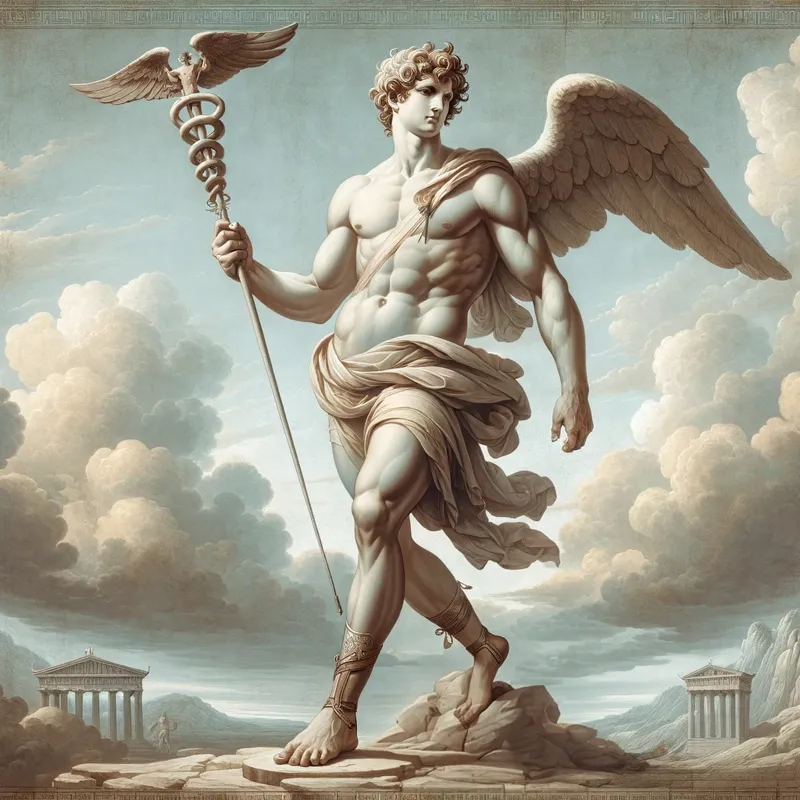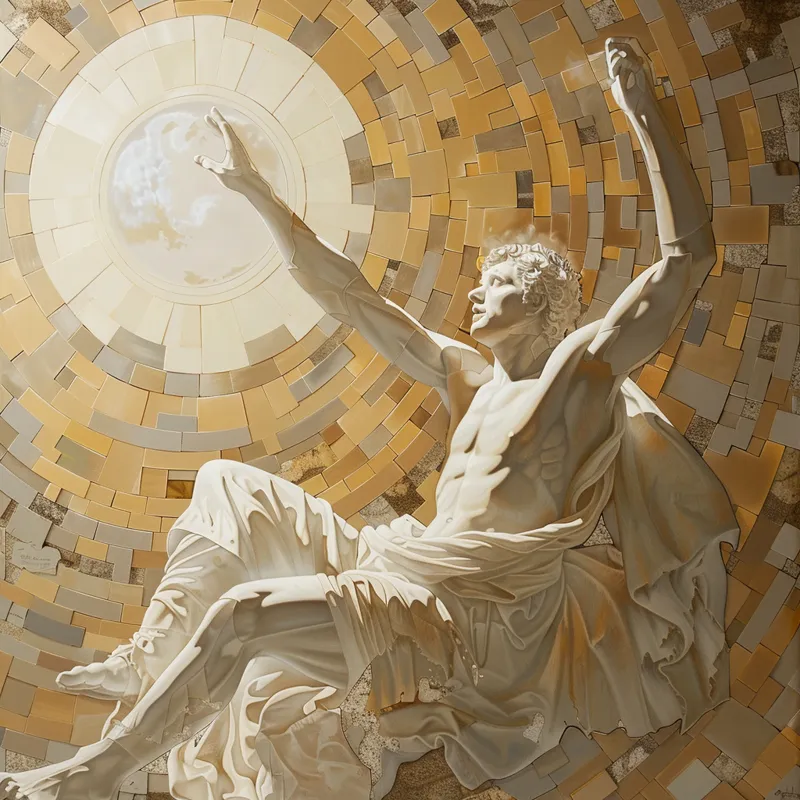
Flying or Falling?
Apollo, one of the most revered deities of the ancient Greek pantheon, embodies a wide array of divine attributes and functions. As the god of the sun, light, music, poetry, prophecy, and healing, his influence permeated various aspects of Greek culture and religion. Apollo's significance in Greek mythology reflects the complexity and richness of his character, intertwining elements of truth, harmony, and intellectual pursuit with the darker facets of vengeance and disease.
Birth and Childhood

Play again the song of life
Apollo’s origin is a tale of intrigue and divine machinations. He was born on the island of Delos to Leto and Zeus, under circumstances fraught with danger and jealousy. Hera, Zeus' wife, out of spite, had forbidden Leto to give birth on any land under the sun. However, the floating island of Delos provided a refuge, where Leto bore Apollo and his twin sister, Artemis. This narrative sets the stage for Apollo’s complex character, embodying both the light of deliverance and the shadows of conflict.

Bring light to all the dark places
From his infancy, Apollo was depicted as a formidable entity. Mere days after his birth, he slew Python, a primordial serpent that terrorized Delos, establishing his role as a protector and avenger. This act not only signified his might but also prefigured his association with prophecy, as Python guarded the oracular sanctuary that Apollo would later claim and sanctify as the Oracle of Delphi.
Oracle of Delphi

Liftoff
The Oracle of Delphi stands as a monumental testament to Apollo’s dominion over prophecy and truth. Situated on the slopes of Mount Parnassus, the oracle's location at the sanctuary of Delphi was considered the navel of the world, where Apollo communicated divine wisdom through the Pythia, a priestess over whom he exerted spiritual influence. The prophetic utterances delivered here shaped the destinies of individuals and city-states, marking Apollo as a pivotal figure in the spiritual and political life of ancient Greece.

All we have is eachother
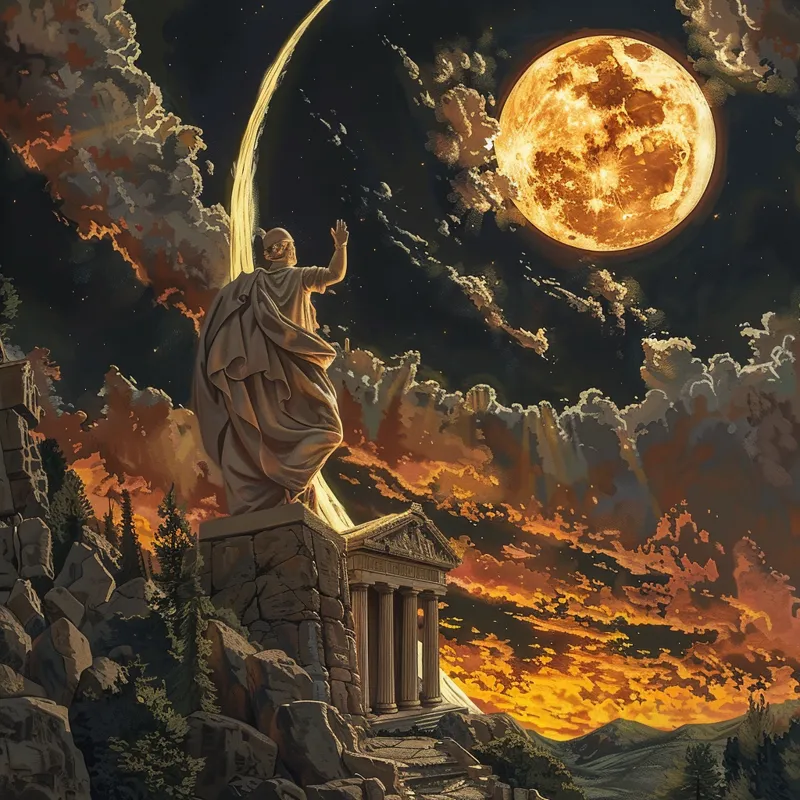
Godspeed
Apollo's influence at Delphi extended beyond mere prophecy; it was a place where the harmonious order and the divine will of Apollo were manifest. Pilgrims and rulers alike sought the oracle’s guidance, and the Pythian Games, celebrated in Apollo’s honor, attracted competitors from across the Hellenic world. This convergence of spiritual, cultural, and athletic activities underscored Apollo's integral role in fostering a unified Greek identity.

Where no one has gone before
God of Healing and Plague

One step for...
Apollo’s dichotomous nature is perhaps most vividly expressed in his dominion over healing and plague. On one hand, he was venerated as a god of healing, with sanctuaries across Greece serving as centers for medical treatment and purification rituals. Apollo’s son, Asclepius, further embodied this aspect, rising to prominence as a god of medicine and healing.
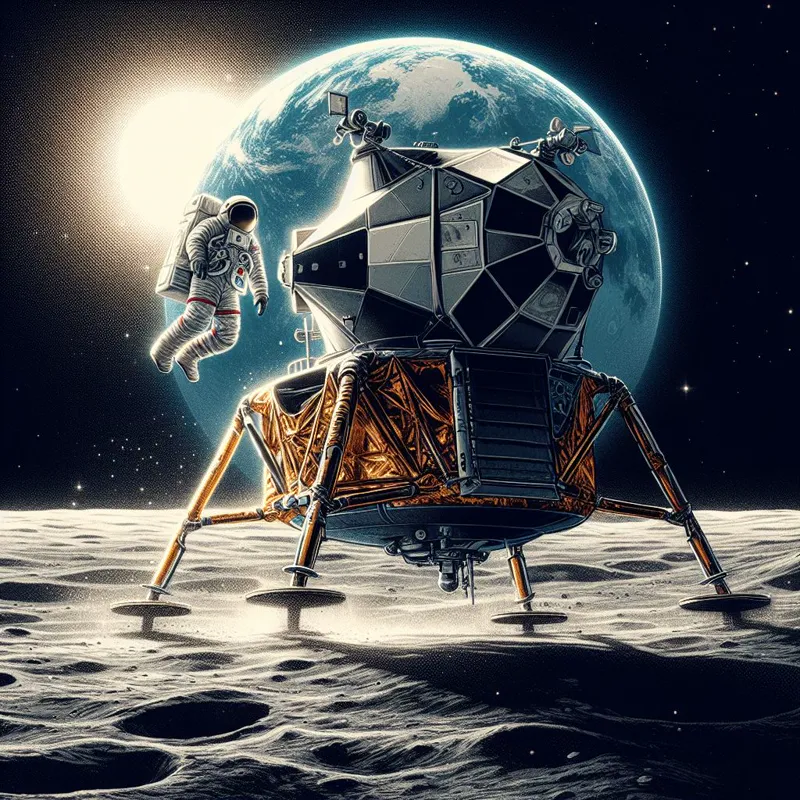
Only gods have seen
Conversely, Apollo could unleash deadly plagues, as famously depicted in the opening of Homer’s 'Iliad', where he punished the Greek army with pestilence. This dual capacity to give and take life underscores the Greeks’ view of Apollo as a complex and unpredictable deity, whose benevolence and wrath could be invoked by mortal actions and divine politics alike.
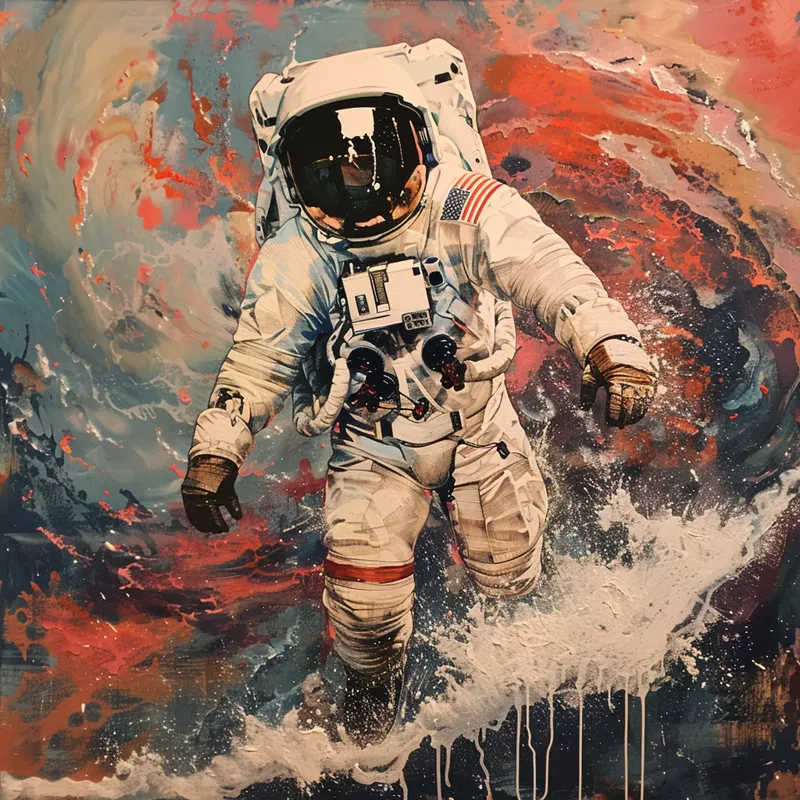
Paving a way into the unknown
Patron of Arts and Music

Our guides
Apollo's association with the arts and music is legendary, symbolized by his golden lyre and the harmonious sounds it produced. As the patron god of music, he inspired poets, musicians, and artists, guiding the creative and intellectual endeavors that flourished in ancient Greek culture. His musical contests, such as the one with the satyr Marsyas, epitomize the celebration of artistic skill and the severe consequences of hubris in challenging the divine.
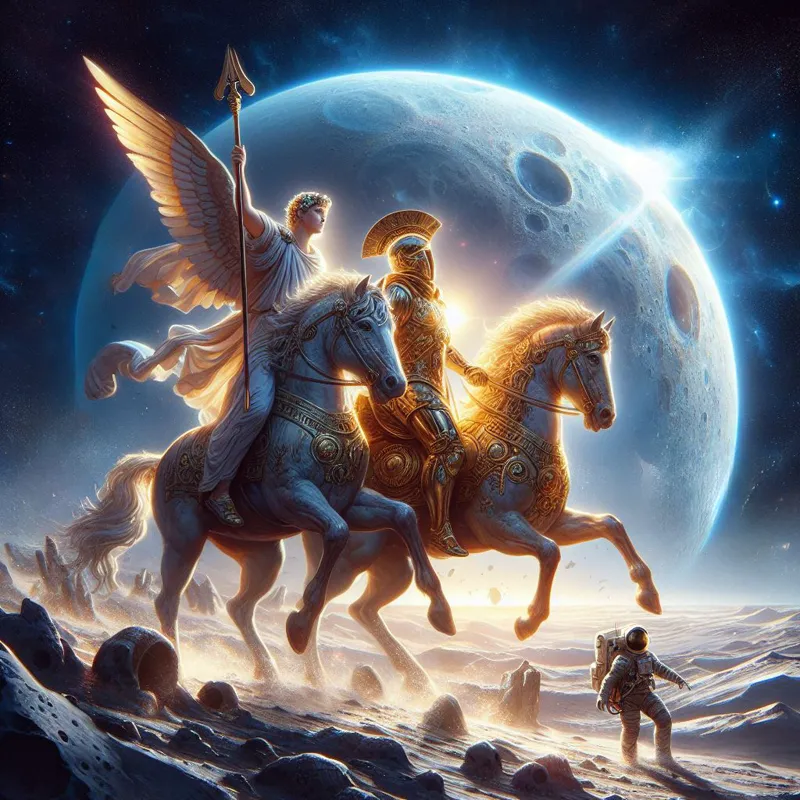
Trinity
Moreover, Apollo’s leadership of the Muses, the goddesses of the arts, underscores his profound connection to the realm of creativity and knowledge. His festivals were occasions of artistic performances, celebrating not only his divine attributes but also the cultural achievements of the Greeks. This patronage reflects Apollo’s embodiment of ideal beauty and intellectual pursuit, central themes in Greek art and literature.
Relationship with Artemis

Pale blue dot
Apollo's relationship with his twin sister, Artemis, adds depth to his mythological persona. While he was associated with the sun and rationality, Artemis represented the moon and the wild, embodying a complementary yet distinct aspect of the divine spectrum. Their partnership in various myths, including their joint action in the defense of their mother and the punishment of transgressors, illustrates the close bond and shared sense of duty between them.
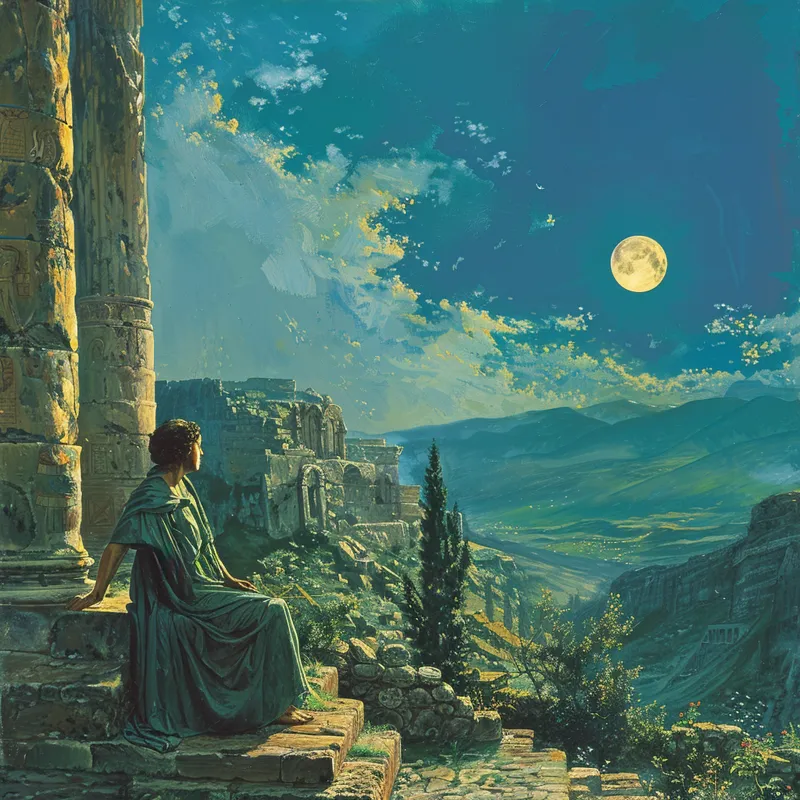
Perspective
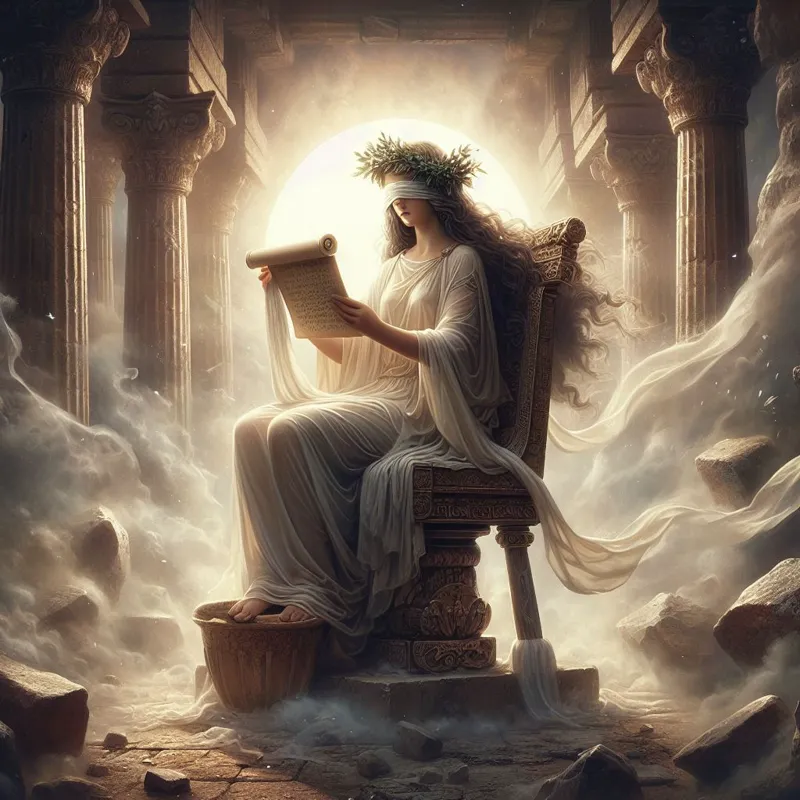
Blind to our own errors
This fraternal relationship also highlights the balance of masculine and feminine principles within the Greek pantheon. While Apollo’s domain included the civilized aspects of society, such as law, order, and healing, Artemis governed the untamed and natural world. Their cooperation and mutual respect in mythological narratives underscore the holistic view of the universe that the Greeks espoused, where every deity had a role in maintaining the cosmic balance.
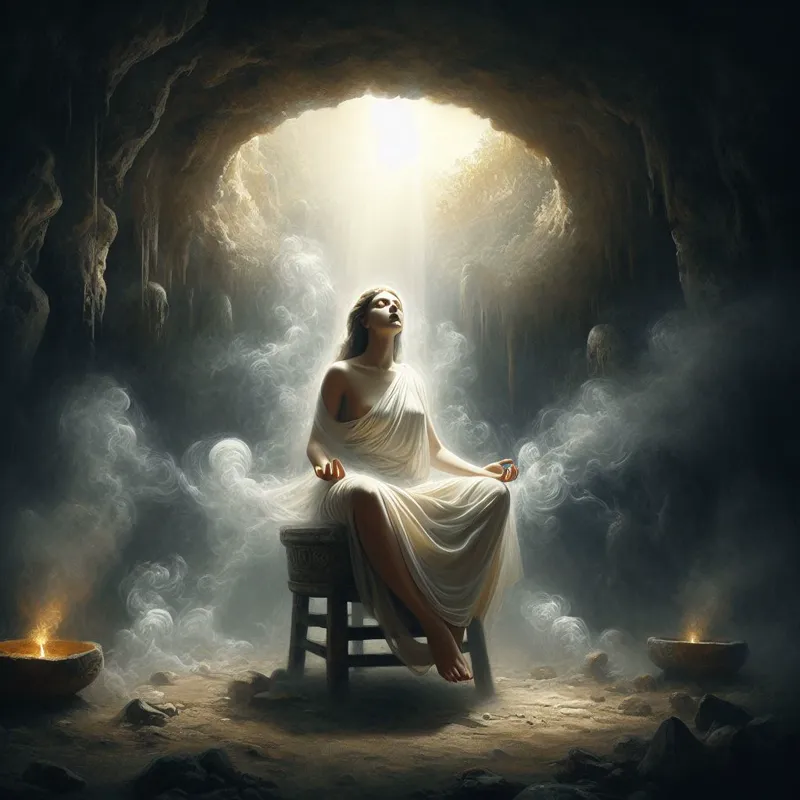
Calm mind
Political Influence

What is real?
In the political sphere, Apollo held considerable influence as a god of law, order, and prophecy. His oracles, especially the one at Delphi, were pivotal in political decision-making, providing divine sanction to human affairs. Leaders sought Apollo’s guidance through his oracles, integrating his divine will into the governance and diplomacy of the time. This blend of religion and politics reinforced Apollo's status as a crucial figure in the societal and state mechanisms of ancient Greece.
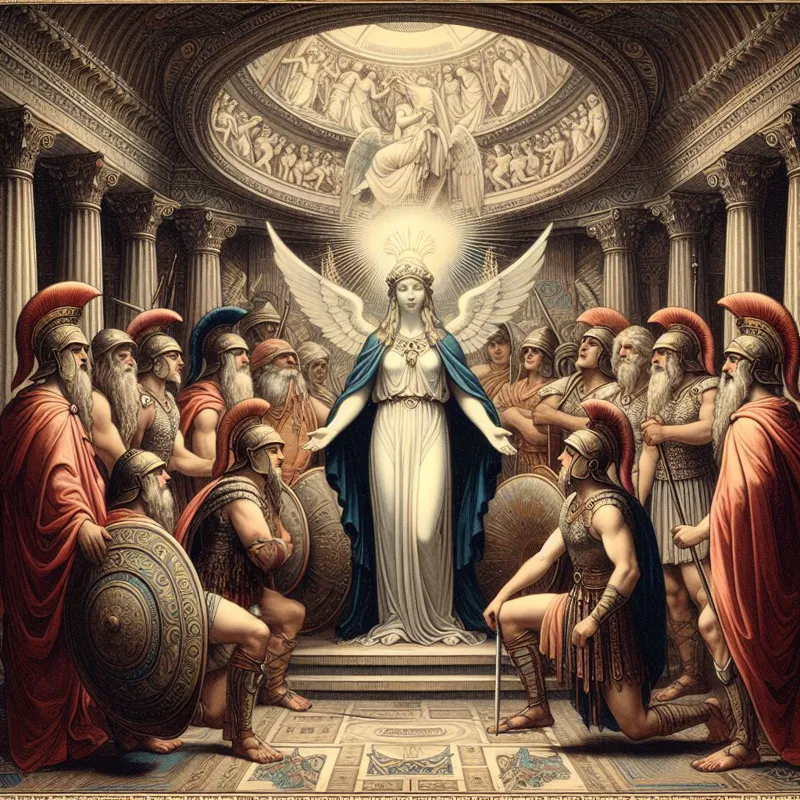
Judge with purist eyes
Apollo's sanctuaries and temples were not only places of worship but also of political significance, serving as venues for treaty signings and diplomatic meetings. His festivals, particularly the Pythian Games, were occasions where athletic, artistic, and political activities intertwined, reflecting the interconnectedness of religious worship and civic identity in Greek society.
Legacy and Worship
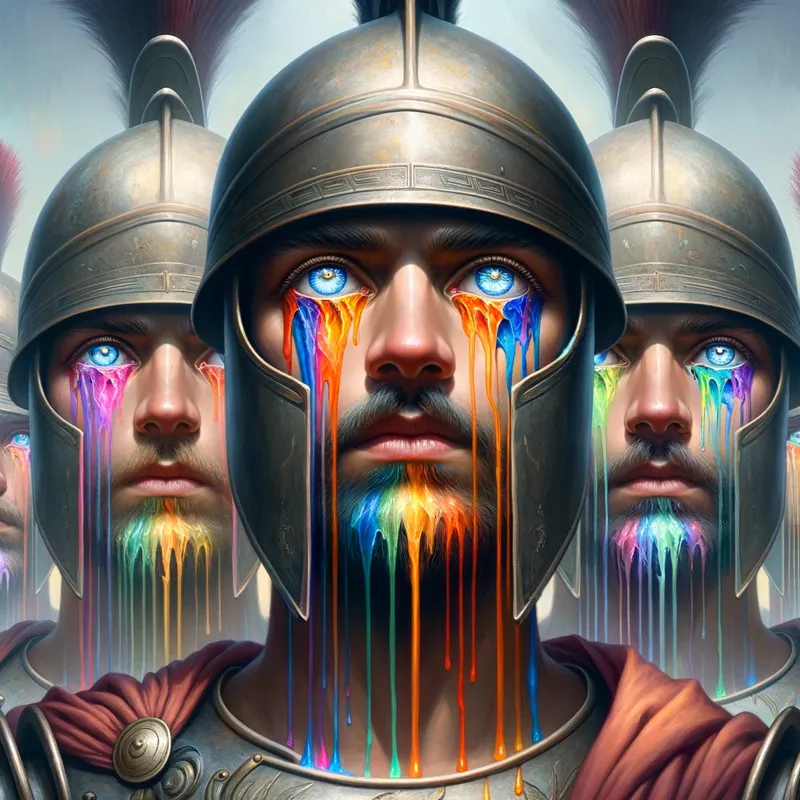
Illusions fall away
Apollo's legacy extends far beyond the confines of ancient Greece, influencing Roman religion and Western culture at large. Adopted by the Romans as Apollo (known by the same name in Greek mythology), he retained his essential characteristics and continued to be venerated as a god of prophecy, healing, and the arts. The enduring appeal of Apollo is evident in the persistence of his imagery and attributes in art, literature, and philosophy, signifying his lasting impact on Western thought and aesthetics.
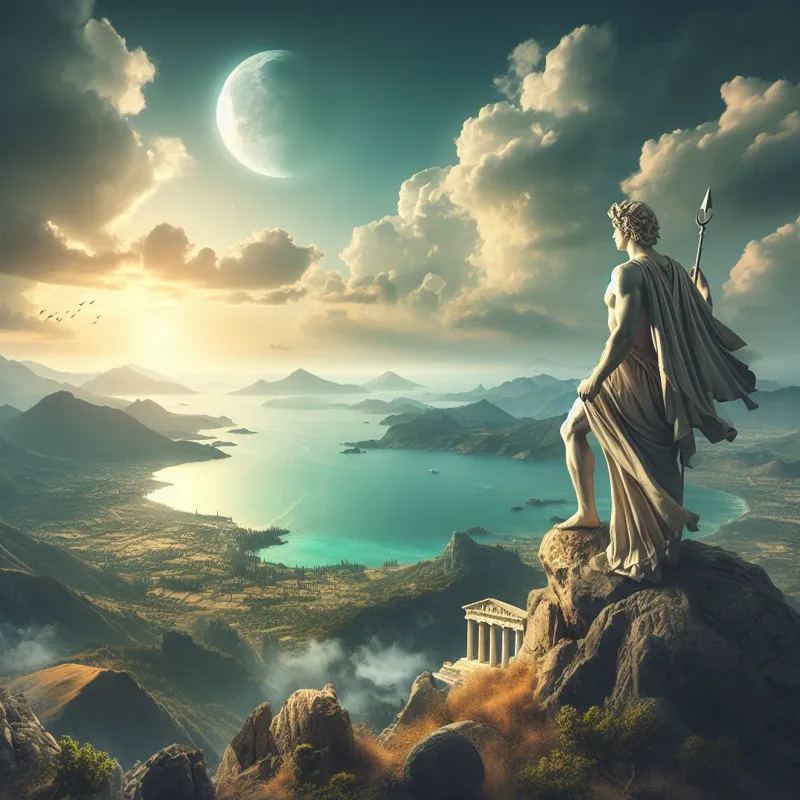
To see again as if the very first time
The worship of Apollo, characterized by oracular consultations, theatrical performances, and athletic contests, highlights the multifaceted nature of his divine persona. These practices, which continued throughout antiquity and were later revisited during the Renaissance, underscore the enduring significance of Apollo as a symbol of harmony, beauty, and human striving for knowledge and understanding.
Apollo, with his broad spectrum of divine responsibilities and attributes, remains one of the most complex and revered deities in Greek mythology. His influence on various aspects of ancient life, from the spiritual to the political, and his enduring legacy in art and culture, reflect the profound impact of his figure on human civilization. Apollo’s mythology, rich with tales of power, retribution, and protection, continues to captivate the imagination, offering insights into the ancient world and its perceptions of the divine.


